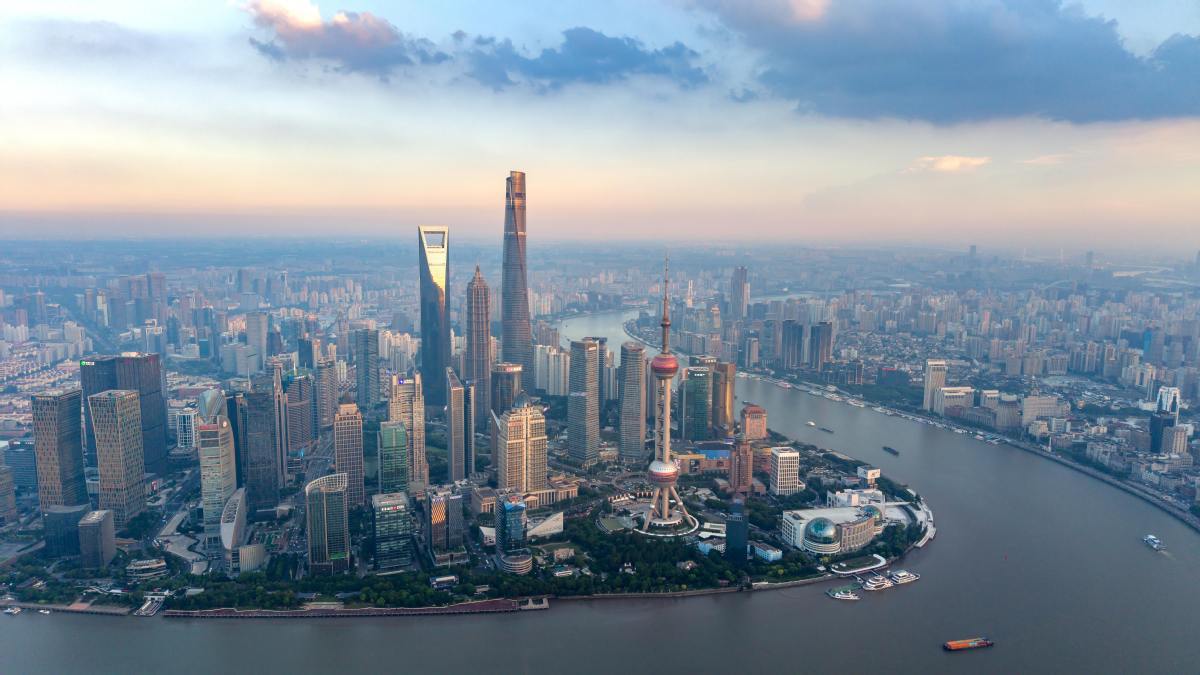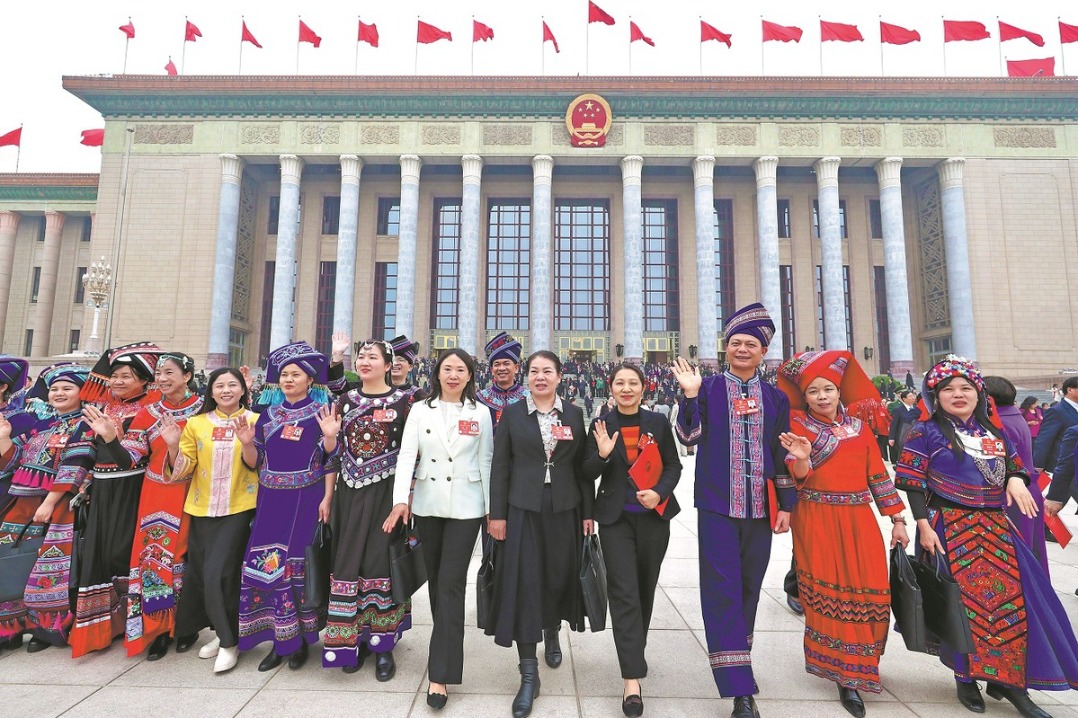Shanghai leverages tech prowess to drive growth


Further facilitating smoother flows of capital, data and talent can help Shanghai pursue innovation-driven economic growth and strengthen its role as an international gateway characterized by openness, innovation and inclusiveness, officials and multinational executives said on Sunday.
They made the remarks at the 37th International Business Leaders' Advisory Council for the Mayor of Shanghai, or IBLAC.
Chen Jining, Shanghai Party secretary, said in his opening remarks that the city will deepen basic research that carries higher risks but promises greater value. He added that Shanghai will enhance its efforts in frontier and disruptive technologies to fully leverage its strength as a technology innovation pioneer.
Miguel Lopez, CEO of German industrial conglomerate Thyssenkrupp, suggested that Shanghai work to ensure "smooth and boundless" data flow, which could further enhance multinational companies' research and development activities in the city.
Data also lies at the heart of robust investor protection, said Shriti Vadera, chair of Prudential Plc, noting that such protection is especially crucial amid the rise of artificial intelligence. She proposed that Shanghai pilot shared testing protocols and requirements for explainability, invite global participation in testing sandboxes, and establish trusted, auditable data corridors to safeguard privacy.
Dick Richelle, CEO of infrastructure provider Royal Vopak, envisioned setting up a digital free trade zone in Shanghai, which he said could further boost the city's productivity and growth.
These ideas are not far-fetched, said Shanghai Mayor Gong Zheng in his keynote speech. The city will press ahead with pioneering reforms across all fronts and introduce internationally competitive policies and mechanisms at a faster pace, he said.
Amid a complex international landscape and pressure on foreign capital inflows resulting from trade tensions between China and the United States, Gong said Shanghai will do its utmost to provide greater certainty to support multinational companies' development.
While foreign enterprises have long brought advanced expertise into China, they are now also benefiting from innovation generated within the Chinese ecosystem, said Severin Schwan, chairman of the board of Swiss pharmaceutical giant Roche Group. With interdisciplinary resources in biology, chemistry and artificial intelligence, Shanghai has become an increasingly attractive innovation hub, he said. In May, Roche announced a 2.04 billion yuan ($290 million) investment to build a biopharmaceutical production base in the city.
Chey Tae-won, chairman of South Korea's SK Group, suggested Shanghai establish evaluation mechanisms and supportive measures — such as favorable tax policies and incentives — to help the city become a benchmark for demonstrating the social value of AI. Doing so, he said, would attract more innovative ideas, capital and talent.
Jacob Wallenberg, chair of the board of Investor AB, recommended that Shanghai create zones with simplified licensing and clear incentives to further open sectors such as green technology, healthcare and digital services — steps that could draw expertise and long-term investment. He also suggested regular dialogue between regulators and businesses, along with annual updates on policy clarity, to build confidence and trust.
Oliver Baete, CEO of financial services provider Allianz SE, said Shanghai should deepen cooperation with Hong Kong to facilitate smoother two-way capital flows into the Chinese market.
Vadera of Prudential added that greater opening-up to foreign financial service providers would make China's domestic market more stable and liquid, citing research from the Bank for International Settlements.
A free flow of global talent to invigorate Shanghai's economy emerged as a consensus among many IBLAC participants.
Mark Greeven, dean of Asia for IMD Business School in Switzerland, proposed establishing a special corridor for R&D experts to help Shanghai retain top talent and spur innovation.
John Elkann, chairman of European automaker Stellantis Group, said there remains room to simplify visa, work permit and residency procedures through digital tools and dedicated channels for professionals entering the city.
"If Shanghai can attract and retain the best people, channel vast savings into productive use, and lead in the practical application of AI, then it will not only secure its role as one of the world's great cities, but also become a place where China's next wave of growth begins," said Chip Kaye, chairman of private equity firm Warburg Pincus.
Since its inception in 1989, IBLAC has served as an international think tank offering strategic advice to Shanghai's mayors. This year's meeting welcomed six first-time participants from the semiconductor, finance, sports and consumer goods sectors, including South Korea's SK Group, sportswear giant Nike and Brazilian iron ore producer Vale.
The next IBLAC meeting, scheduled for Oct 11, 2026, will focus on boosting innovation-driven development in Shanghai's service industry. Rob Speyer, CEO of global real estate firm Tishman Speyer, will chair next year's event.
- Shanghai leverages tech prowess to drive growth
- Cities unite behind cultural preservation
- China approves world's 1st domestic drug for hepatitis B cure
- China successfully launches new test satellite
- Zhangjiajie International Acrobatic Festival showcases cultural exchanges
- China's role in advancing gender equality through education highlighted







































